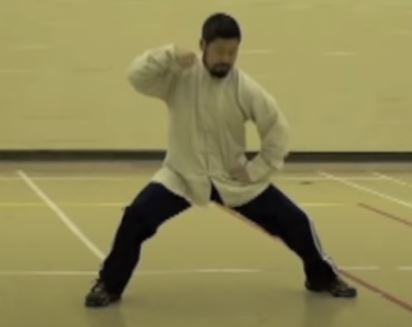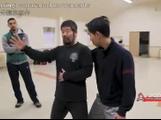
Exploration of Perceptual Aspects of Taijiquan
James Tam Nov 12, 2018
China has a rich list of intangible cultural heritage. Taijiquan is one that many can immediately recognize and that many find fascinating. How to continue to develop and promote Taijiquan; how to improve efficiency in teaching and learning and how to enhance methodologies are important issues.
To help enhance this rich non-material cultural heritage, either through advancement of this art per se, or nurturing its widespread growth through advances in teaching and learning methods, both basic and applied knowledge can be expanded through the exploration and examination of perceptual aspects of Taijiquan. This goal can be achieved using tools and methodologies from Experimental Psychology, particularly those involving perception.
Perception is a process by which people become aware of and recognizes objects and events in the external world. The process involves stimulation, organization, interpretation, evaluation, memory and recall. The process of recognizing and interpreting sensory stimuli is through the traditional five senses, with touch and vision being of particular relevance to Taijiquan. In addition, the more recently recognized sense of balance (gravity and acceleration) and sense of position (proprioception) are also highly relevant. These signals from multiple sources have to be organized by the brain into a consistent and comprehensible world that is unified and stable such that it allows us to manoeuver around objects or act on them effectively. Otherwise, incongruous signals will create confusion that can cause actions to freeze and prevent us from behaving in a rational manner.
Taijiquan is an internal martial art. It has to be taught not only by word of mouth but also by touch as well. Learning cannot be just through watching and copying the teacher’s movements and postures visually, but has to be felt and coached into the right movements and positions. Thus, to facilitate both the teaching and the learning aspects of Taijiquan, a proper understanding is required of the perceptual features involving senses of balance, positioning, and detection of where strength and pressure are being applied and directed. Perceptual studies using knowledge and experience from Experimental Psychology can increase our understanding of the why-and-how of Taijiquan. For example, with respect to Chen Style Taijiquan Practical Method, research into the perceptual aspects of “imbalance” arising from multi-directional forces or the cloaked sensation of “indirect power” can lead to new findings and the concrete identification of critical factors and their interactions. Indeed, there are many potential topics for exploration and research, not only in the domain of martial benefits but also in areas of mental and physical benefits that have been recognized by many Taijiquan practitioners world-wide.
Notes:
https://ich.unesco.org/en/decisions/15.COM/8.B.21 UNESCO (Intangible Cultural Heritage) Decision of the Intergovernmental Committee: 15.COM 8.B.21 Dec 2020.
https://medium.com/the-philipendium/the-5-senses-or-maybe-7-probably-9-perhaps-11-f9e6c54f76f0 The 5 Senses, or Maybe 7, Probably 9, Perhaps 11 by R. Philip Bouchard, Nov 8, 2016.
https://practicalmethod.com/2022/03/structural-force-and-indirect-power/
结构力和间接力是什么关系?Original post in Chinese by Master Chen Zhonghua, Feb 24, 2019. Translation by Yuxin Liu, Mar 1, 2022.
https://www.nytimes.com/2023/06/20/well/move/tai-chi-workout.html
Tai Chi is a Workout for the Brain and Body by Cindy Kuzma, June 20, 2023.



{ 2 comments… read them below or add one }
James, do you believe in ghosts?
https://www.pnas.org/doi/epdf/10.1073/pnas.89.16.7683
James, we maybe have to ability to detect magnetic fields due to magnetite in our neurons. Even neuroscientists don´t know about this fact. They may play a role in the generation of brain functions in general. In the article the speculated about a possible health risk of strong electric and probably magnetic fields like MRI.